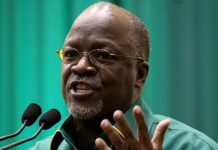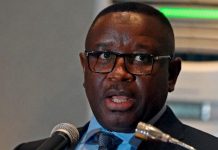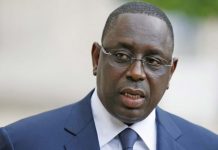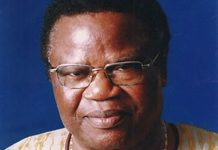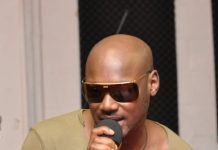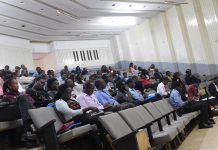By Pat Chukwuelue
Some people do not deliberately set out to create a legacy. Neither do they set out in search of publicity. They do what they do simply out of personal convictions. One of such people lived among us – the man died among us. Thirty years ago, the leader of Burkina Faso’s revolution, Thomas Sankara, was killed in a hail of bullets, bringing to an end a charismatic life that today has easily gained cult status in Africa.
The young army captain who took power in the abjectly poor nation in 1983 was called a socialist because of his convictions which washed off on the way he lived and died. Thomas Sankara was assassinated in 1987, the way his counterpart in Nigeria, General Murtala Muhammed, was gunned down eleven years earlier, on the streets – as he headed to a government meeting.
Born on December 21, 1949, at Yako in the northern part of what was then known as Upper Volta, the radical officer was not yet a teenager when his country attained political independence.
There can be no doubt that young Thomas was already nursing ideas that pointed to where he really wanted to be. After the coup in November 1980, the Head of state, Colonel Saye Zerbo, appointed Sankara junior minister of information. But he was too radical to accept things that he did not like with the regime. He quit the government after eighteen months.
Planners of the coup of August 1983 put Sankara in power as the new helmsman. He moved quickly and scrapped the country’s name of Upper Volta, replacing it with Burkina Faso, or “land of upright men”, and introduced socialist policies to draw a line between his corrupt predecessors and his progressive regime. He was only 33 but Sankara had already cast himself as the symbol of what the great Zik of Africa would call the proud and Renascent Africa.
The image was a stunning break from that of the country’s corrupt leaders who took office after political independence. Thomas Sankara was lean and handsome, always smiling, eager to show his love for football and other sports and an accomplished jazz guitarist who liked nothing more than to jam with musicians. But he was also a hard-working technocrat who slept little and always wore battledress and fond of the small pistol the North Korean leader, Kim Il Sung, gave him.
He kept his lean family, one wife and two sons, in the small presidential palace while all he could boast of were a guitar and a small second-hand car. He ordered government ministers to use smaller cars and abandon their limousines. The youths, in particular, hailed this order as well as their new leader’s image and style, which ignited his popularity among the people, especially in the urban settings.
Thomas Sankara was zealous about cleaning up public finances and trimming the country’s bloated civil service, in order to improve the health conditions of the citizens as well as to increase access to education and to take measures to meet the aspirations of rural dwellers.
On every occasion, the socialist leader made it clear that he would not compromise in the campaign against capitalism “We have to decolonise mentalities,” Sankara used to say. Committees for the Defence of the Revolution (CDR) were formed to keep watch on the people, while People’s Tribunals of the Revolution (TPR) dispensed justice.
The young Head of state dealt with a teachers’ strike by sacking the teachers, while the political opposition and trade unions were kept in check by arrests. Burkina Faso’s relations with the outside world passed through the topsy-turvy stage under Sankara. Perhaps, what annoyed the leaders of the Western world the most was that Sankara kept close ties with the radical rulers of Libya and Ghana, Muammer Ghadafi and Flight-Lieutenant Jerry Rawlings. Some African Heads of State, especially in Ivory Coast and Togo also frowned at Sankara’s antics.
Against the protests from mainstream African leaders, the French Socialist President at the time, Francois Mitterrand, officially welcomed the Angolan anti-Marxist rebel, Jonas Savimbi, and South Africa’s apartheid leader, Pik Botha, in Paris. Thomas Sankara was enraged and he publicly gave Mr. Mitterrand a lesson in human rights when he visited Ouagadougou. He urged struggling African nations to stop paying their debt to the West. “The debt cannot be reimbursed because if we don’t pay, our creditors won’t die. But if we pay, it’s us who will die. Be sure of it,” Thomas Sankara argued.
The Sankara era held sway for only four years in Burkina Faso. On October 15, 1987, on his way to a special cabinet meeting, Sankara was assassinated in another coup that left his close friend, Blaise Compaore, in power. It is believed in many circles that Compaore master-minded the assassination, especially when he assumed office and started to blame Sankara for the decline in ties between the country and its colonial master, France, as well as the relations between Burkina Faso and Ivory Coast.
But what counts is not longevity of life or regime. Sankara’s ideas and philosophy of life earned him the image of a revolutionary. His followers cherish his ideas and his courage more than the length of time he spent in power. The Sankara magic led to the civil unrest that swept away his former close colleague who turned capitalist, Blaise Compaore, from power. Although his successor stayed in office for twenty-seven years, any common man in Burkina Faso will easily tell you which of the two past leaders he prefers.
Thomas Sankara was simple though idealistic. He spread the ideals of nationalism and hope for the youths. He probably did not set out to give up his military career in exchange for politics. But he was cut down before he knew the dimensions of the challenge. The Sankara image lives on, though.







